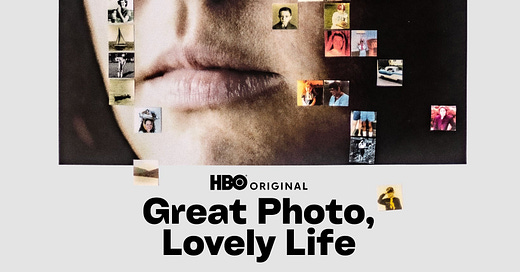HBO's 'Great Photo, Lovely Life' is a shattering documentary about abuse
In film that recalls 'Capturing the Friedmans,' Amanda Mustard and Rachel Beth Anderson explore terrible family secrets that continue to reverberate
Here’s a disturbing but ultimately illuminating documentary about the legacy of sex abuse, and how it reverberates across generations. And while that topic has not exactly been under-explored in recent years, it hasn’t often been done quite like this.
Great Photo, Lovely Life: Facing a Family’s Secrets debuted on HBO and Max last week. Filmed over eight years, it centers around Amanda Mustard, a photojournalist, and co-director of the film (along with Rachel Beth Anderson.)
Mustard’s grandfather, Bill Flickinger, was a pedophile and serial sex abuser, who victimized a great number of people over a considerable amount of time while he was working as a chiropractor. It’s similar in many ways to the Jerry Sandusky story, also in Pennsylvania, in which there were many chances, none of them taken, to stop this serial abuser.
As the documentary makes clear, there was plenty of blame to go around for the failure to promptly stop him, from a criminal justice system that repeatedly let him off with minor punishments, to Flickinger’s wife (the filmmaker’s grandmother) and his daughter Debi (the director’s mother), who could have done more herself to stop the abuse- even, at one point, sending her daughter (Mustard’s sister) to live with Bill and his wife.
Great Photo, Lovely Life does something else differently from most other documentaries of its kind: It gives the monster his say. Flickinger is interviewed on camera, where he’s confronted by messages from some of his victims, and expresses only limited remorse- and a great deal of disgusting religious justification, in trying to get his family members to forgive him. No, you don’t have to be a priest or archbishop to pull crap like that.
He is also, at the time of the filming, a free man, in a senior living facility, although he has since passed away.
I know current thinking it’s wrong to “platform” evil people. If the film were letting the abuser speak at length and not confronting him or pushing back, I would agree.
The film recalls, in many ways, Capturing the Friedmans, Andrew Jarecki’s great documentary from 20 years ago about a father and son both accused of sexual abuse, and a film that included a great deal of intimate old home movies of the family members arguing about it.
We see that here too, especially with mother and daughter continuing to argue about the events of decades ago. There are limited home movies, but there are lots of photographs and old recordings laying out the history, and expertly put together by the filmmakers.




